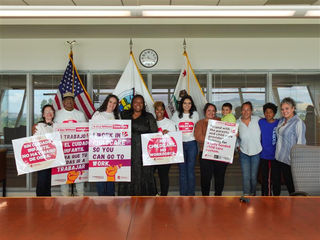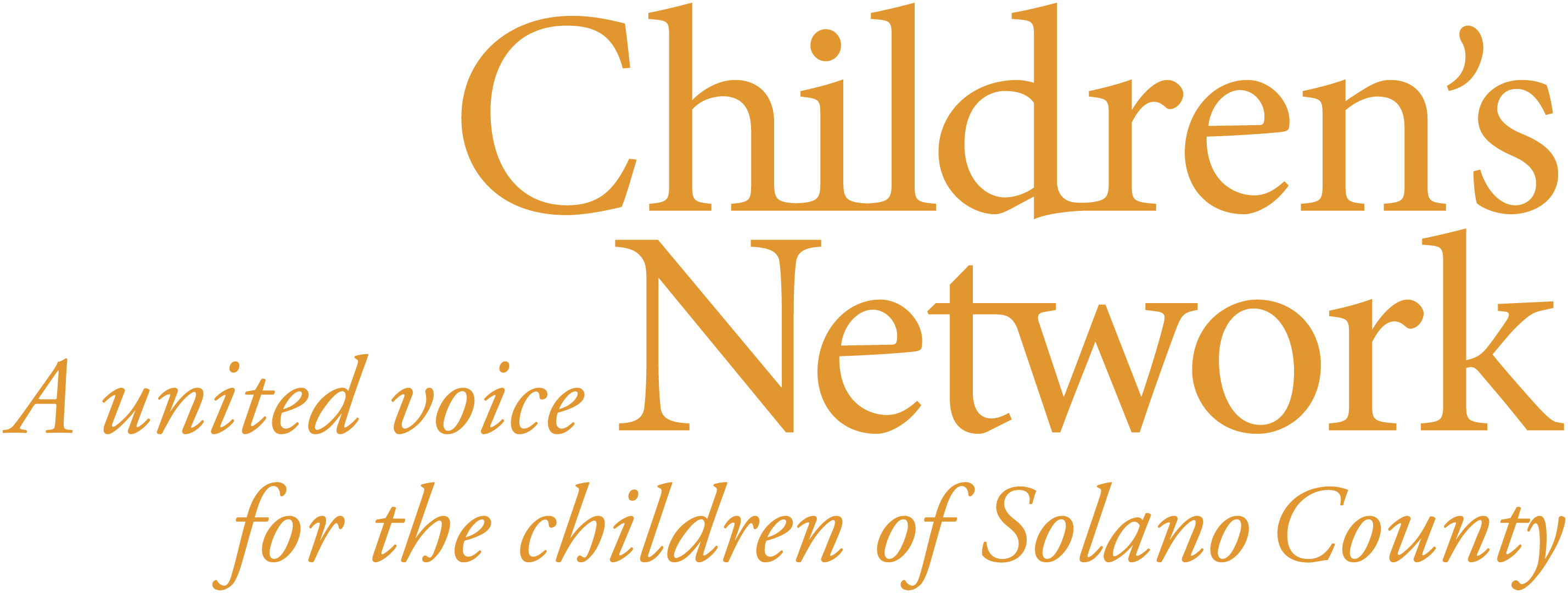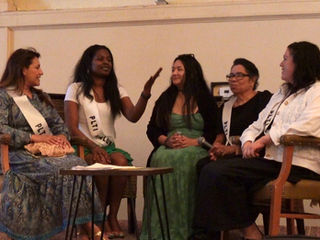
Celebrating Our 2026
PLTI of Solano Graduates
After 20 weeks of learning and growth, our parent leaders have graduated from the Parent Leadership Training Institute of Solano. The celebration brought together families, community partners, and graduates to recognize their dedication and commitment. We congratulate our graduates and look forward to the positive impact they will continue to make for children and families across Solano County.



Applications Now Open!
The Parent Leadership Training Institute of Solano (PLTI) is a free, 20-week in-person program starting early 2026. Open to all adults, parent or not, this is your chance to step into the leader you are and be part of the first-ever Vallejo class, making real change in your community.
Don't miss out! Contact Monica (415-684-5072) or Alan (alankerzin@gmail.com) for more information.
Empowering Community Leaders
The Parent Leadership Training Institute (PLTI) is a free 20-week program developed to help you develop leadership skills and become a strong advocate for positive change in your community. Focused on civic engagement, PLTI gives you the tools and knowledge to take an active role in improving outcomes for families and children.
Who Should Apply
Have you wanted to make a difference for your family and community but didn’t know where to start? PLTI welcomes anyone ready to step up and lead. It is open not only to parents but also to caregivers, teachers, youth, and community members who want to create positive change. No experience is needed; just a passion to learn and make a difference.

English
Español
Questions About PLTI?
We're here to help! Reach out to us for more information about the program, application process, or what to expect.
Monica Soriano - (415) 684-5072
(Habla español)
Alan Kerzin - alankerzin@gmail.com
PLTI in the News
Parent Leadership Training Institute of Solano to celebrate 2026 graduates
Fairfield-Suisun Unified School District, 2/3/2026
Parent Leadership Training Institute Celebrates 2025 Graduates
Fairfield-Suisun Unified School District, 4/9/2025
Letters to the Editor: Parent Leader Institute helps mother grow
Daily Republic, 12/9/2024

PLTI helped me to improve speaking in public, to trust myself and to open my eyes that I can make a difference in my community.
I can make a difference in at least in one person's life.
PLTI participant

Monica Soriano, PLTI Coordinator
Monica has been the PLTI Site Coordinator since its inception in Solano County in 2015. Throughout her time with PLTI, she has had the privilege of getting to know some of the most amazing and influential parent leaders in the community. She has witnessed their journeys of personal growth and leadership development firsthand. Before joining the Children’s Network, Monica primarily worked in the nonprofit sector. She has always felt, and continues to believe, that she can make the greatest impact and find her true purpose through social justice work. Her professional experience includes working alongside community organizers, foster youth, youth in the juvenile justice system, social workers, attorneys, judges, individuals experiencing homelessness, formerly incarcerated individuals, seniors, clergy members, and families. Monica holds a Bachelor of Arts in Liberal Arts with an emphasis in Journalism from San Francisco State University. She is the proud parent of two children, Viviana and Max, and serves as an active member of the Diversity, Equity, Inclusion, and Belonging (DEIB) Committee at her son’s school. In her free time, she enjoys reading, writing, and connecting with people. She is currently working on a voice, video, and writing project designed to uplift parent voices in the community. Before joining PLTI, Monica never considered herself a leader, let alone someone who had a voice or a seat at the table. She saw herself as “just a parent.” But with the support and encouragement of the PLTI community, she came to understand her role as a community leader and now proudly models leadership for her children, showing them how to advocate for the change they want to see in the world. PLTI has been a transformative journey for Monica, shaped by the parents, grandparents, and community advocates she has met—people who come together to support, understand, and uplift one another across lines of language, gender, race, ethnicity, and socioeconomic background. Though the journey has come with its share of challenges and mistakes, she believes it is deeply worthwhile, because the future of our children depends on it.

Sara Anders, PLTI Facilitator
Sara Anders joined PLTI to address critical issues her family faced. When her son experienced racism in his school, Sara recognized the need for change within the Vallejo City Unified School District (VCUSD). She identified gaps in the district's policies and procedures regarding how schools address racism and collaborated with VCUSD to advocate for systemic improvements. After graduating from PLTI, Sara’s passion and leadership led to her selection as a Phase 1 facilitator, a role she eagerly embraced. She recently completed her second cohort in Fairfield, California, and is actively working to bring PLTI to Vallejo to empower even more families. Sara is particularly proud of her efforts to secure stipends for cohort participants this year, ensuring that parents and caregivers feel supported as they develop their leadership skills. She looks forward to continuing her impactful work with PLTI and helping to foster positive change in her community.




PLTI in Action

Civic Outcomes Results
The graph below shows the scores before and after the program, converted to a 0-100 scale for easier comparison. These results highlight the positive impact of PLTI on participants' leadership and civic engagement.

Evaluations: Measuring Impact and Success
PLTI of Solano County Report 2022-2023
The 2022-2023 evaluation of Solano County’s PLTI by NYU’s Metropolitan Center found increased civic confidence, leadership development, and community connections. Participants praised the program’s inclusivity, and a Net Promoter Score of 100 reflected high satisfaction and strong endorsement.
PLTI National Report 2021-2022
The 2021–2022 national evaluation of PLTI by NYU’s Metropolitan Center found significant growth in civic knowledge, participation, leadership, and community connections. Participants rated the program’s inclusivity highly, and a Net Promoter Score of 81 reflected strong satisfaction and endorsement.

Children's Leadership Training Institute
(Course not currently offered in Solano)
The Children’s Leadership Training Institute (CLTI) is a parallel course to the Parent Leadership Training Institute, delivered to the children of PLTI participants. CLTI uses literacy as a base and creates a full spectrum of activities that parallel the PLTI course and encompass the multiple intelligences. The template featured a book or books to ground the evening’s session. In addition to group discussion at class, children and youth in CLTI received a new book each week, connected to the learnings of that class, to add to their home libraries and to share with their families.

To develop the session, the CLTI teaching team used PLTI themes, adjusting them to be suitable for children. Each evening’s activities were reviewed to make sure they:
-
Are engaging for children ages 3 to 12
-
Build on literacy skills
-
Include a variety of activities that appeal to different learning styles
Currently, the CLTI is not being offered. We look forward to resuming the program in the future and will provide updates as they become available. (Updated 05/2025)






%20-%2012-2025%20IG%20size.png)
.png)
.png)







